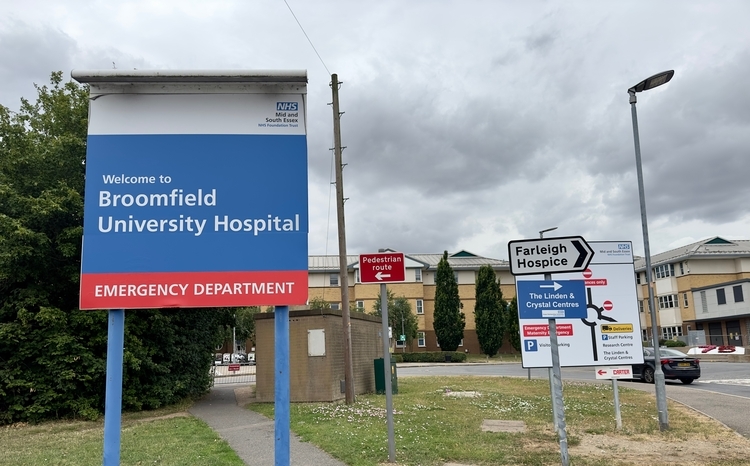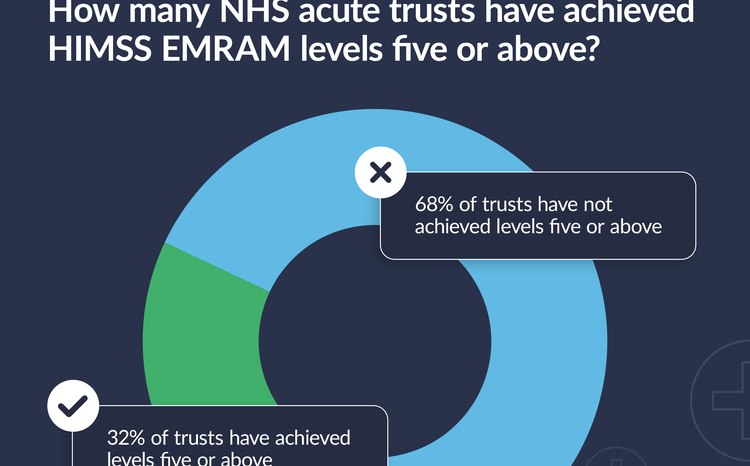Meaningful use: UK measures
- 15 April 2014

Northern Devon Healthcare NHS Trust is finalising the procurement of and preparation for an integrated electronic health record.
As such, we are at that stage where more and more clinicians and managers are asking questions and engaging with what should be an exciting transformation programme.
Understandably, there is a healthy mix of views: from unconditional support to cautious enthusiasm and some skepticism.
Much of this is driven by a desire to understand what is coming and how this will change clinical practice. Some people may have a fear of the unknown and others a fear of another failed IT project.
Meaningful use is not familiar, measurement is
A lot of clinicians want to know just how much time will be required to prepare for the implementation of the EHR, and how using it will compare with continuing to use traditional records.
In the US, this kind of discussion would be dominated by the term ‘meaningful use’, the nationwide programme set up by the Obama administration to reward organisations and clinicians for using federally-funded EHRs, which is now in its third year.
In the UK, unfortunately, ‘meaningful use’ is currently quite meaningless and even unhelpful to many. Yet the systematic measurement of patient safety and quality of care through existing NHS performance frameworks is an every-day focus for staff.
Our EHR ‘clinical champions’ generally agree that a major challenge will be to gain agreement and then implement a measurement framework for all doctors, nurses and therapists that enables the benefit of an EHR to be meaningful at an individual level.
Without this it will be difficult to have a means of supporting staff once the EHR is operational and difficult to continue to deliver further benefit from more advanced functionality.
To address this we are focusing our efforts on getting to a point where we have the following in place:
- A shared multi-disciplinary view of the ‘common good’ that will come from an EHR
- A understanding of the benefit we would expect to see in terms of safety, quality and efficiency
- A ‘process’ view of where in the ‘care system’ that benefit will be had and what needs to change
- Communications material – based on the above – so that we can answer the question, “What’s in it for me?”
Defining patient journeys
We have tasked our clinical change team – the group of clinicians with the authority and task of determining how the EHR will be used – to identify a series of typical patient journeys.
These describe how things are done now and how they will be done differently in a world of digital care records, where there is advanced clinical functionality for decision support, e-prescribing and an ability to easily share this across the care system.
So far, they have produced ten such scenarios. These include an emergency abdominal pain admission leading to surgery; a maternity episode; and a complex journey involving the range of integrated services we provide in our acute, community hospital, and community settings.
Each scenario includes an ‘editorial review’ by a small team comprising a nurse, doctor, AHP/therapist. Through a series of focused workshops we will capture the various processes, interactions, and information assets currently in use.
Supporting processes such as medical records, diagnostic services, and clinical site management are also captured in these scenarios so that everyone can see how they contribute to the care of the patient.
This isn’t just quantitative measurement – we are also looking for more a qualitative views on where ‘tensions’ exist and when and why things can become problematic.
The purpose here isn’t to capture great detail; it is more about developing a ‘rich picture’ of what happens for our most common presenting conditions from a variety of perspectives.
These blueprints are used by the clinical change team – with the support of our change management team – to develop the future vision. The process is proving quite organic.
How do we achieve ‘meaningful use’ and avoid yet another measurement framework?
In other words, we are trying to avoid ‘putting the cart before the horse’ by coming up with a ‘meaningful use’ framework that simply, and potentially erroneuosly, assumes that by using a EHR we will automatically get improvement.
We are also looking at the various performance and improvement initiatives available and asking the question: “How will the EHR help us measure an achieve these?”
This involves the following, among others:
- A review of the patient safety incident register, where we have patient safety standards that we know can be improve upon (for example, improving VTE risk assessment in the day case unit)
- Cataloguing the existing audits and NHS Safety Thermometer data collections and determining how we will collect this via the EHR instead of using the existing paper based disparate systems and processes
- Looking at how we collect patient experience measures such as the Friends and Family Test
- Looking at existing record keeping audits to determine where the EHR can help improve standards.
In doing this, we have found examples of direct relevance to a UK meaningful use approach:
|
The US meaningful use goals |
UK measurement framework, examples: |
|
Patient safety, quality, efficiency |
|
|
Engage patients and families |
Friends and Family Test |
|
Improve care coordination |
|
|
Ensure adequate privacy and security |
|
|
Improve population and public health |
|
We believe that for many of the existing quality and safety frameworks, data can captured in the EHR.
EHR functionality for the systems will allow for forms to be used to capture necessary data which will be linked at clinician and patient level.
Clinical decision rules also offer a means of prompting for the collection of information – such as friends and family tests – in the right circumstances
Subhead: Embedding ideas long-term
In the longer term, we think that an incremental approach to EHR benefit will work best when meaningful use is linked explicitly linked to existing safety, quality, and experience and efficiency metrics.
The foundation will be a structured and standardised clinical record. Both require strong clinical leadership and ownership to succeed.
About the author: Mike Jones has been a chief information officer for seven years, working across all sectors of the NHS, and is currently chief information officer at North Devon Healthcare NHS Trust.
His professional interests include enterprise architecture, service excellence and the development of a framework for measuring meaningful use of electronic health records that works for the UK public sector.
About Northern Devon Healthcare NHS Trust: Northern Devon was one of the first trusts in England to integrate acute and community healthcare services, adding adult community health and social care services in 2008.
It works across an area of 1,300 square miles, centred on North Devon District Hospital, a network of 17 community hospitals, and nine integrated health and social care community clusters.




